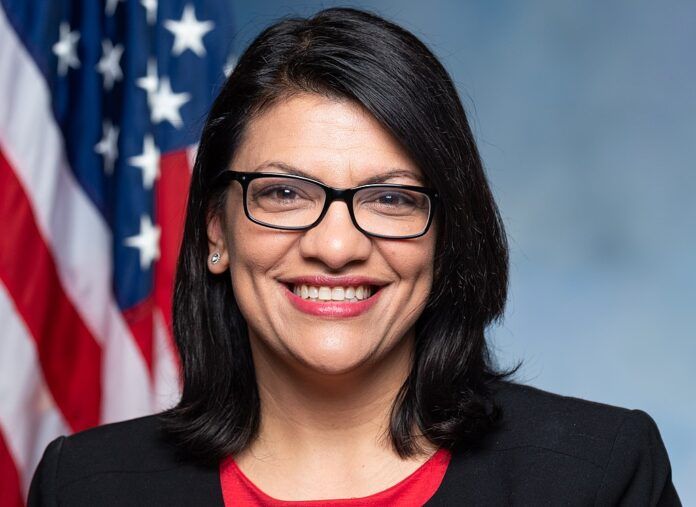Talib alleges colleges infringe on students’ rights by penalizing them for anti-Israel protests amid escalating tensions
Rashida Tlaib, a U.S. Representative from Michigan, expressed her concerns over the treatment of college students involved in anti-Israel protests across the United States. During a statement made on Thursday, Tlaib accused American universities of suppressing students’ constitutional rights by retaliating against them for protesting what she termed a “genocide.”
The congresswoman’s remarks were prompted by the suspension and subsequent arrest of Isra Hirsi at Columbia University. Hirsi, the daughter of Representative Ilhan Omar, was protesting Israel’s actions in Gaza when she faced disciplinary actions from Barnard College, leading to her arrest.
Embed from Getty ImagesTlaib, known for her Palestinian heritage and frequent criticism of Israeli policies, emphasized the gravity of the situation by stating, “From the University of Michigan to Vanderbilt to USC to Columbia, students across our country are being retaliated against for using their constitutional rights to protest genocide. It’s appalling.” Her comments came in response to a post by Isra Hirsi on the social media platform X.
The congresswoman also highlighted the broader implications of the U.S.’s role in the conflict, accusing the country of not just being complicit but actively participating in what she describes as genocide by continuing to supply arms to Israel.
Despite her strong stance against the Israeli government’s actions, Tlaib has faced criticism, including from within her own party, for her use of phrases like “from the river to the sea,” which many Jewish groups argue is antisemitic and implies the eradication of Israel. In defence, Tlaib clarified that her use of the phrase was meant as “an aspirational call for freedom, human rights, and peaceful coexistence, not death, destruction, or hate.”
Furthermore, Tlaib addressed the broader issues of violence and oppression in the region, stating, “The failure to recognize the violent reality of living under siege, occupation, and apartheid makes no one safer.” She argued for a recognition of humanity across all lines of faith and ethnicity, criticizing the unconditional financial support the U.S. provides to what she calls an apartheid government.
Her outspoken stance continues to stir controversy, particularly in light of recent escalations in the Israel-Hamas conflict, with her calling for a ceasefire and mourning the loss of life on all sides. Critics, however, accuse her of a one-sided view, particularly for not condemning the antisemitism reported among some protesters and her remarks on the Israeli government’s role in ongoing violence.
